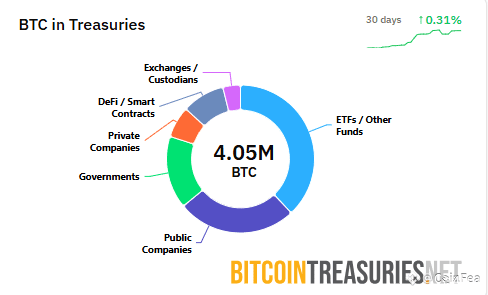The government of Taiwan is looking at diversifying its treasury assets and as such, it considers the idea of building a national reserve through the use of seized Bitcoin.
The plan is expected to convert seized BTC into a formal reserve and evaluate the possible risks.
Pilot study and legislative plan
It is an initiative introduced by a legislator Dr. Ju-chun Ko to the Premier and the Taiwan Central Bank. He proposed six-month pilot study in case of BTC integration in the treasury. Another suggestion is to create crypto-friendly bills in the proposal. BTC stands at a price of over $102,000, which is short of its highest price. This was the plan that was created with the JAN3 group, headed by Bitcoin supporter Samson Mow.
Taiwan breakthrough! Premier & CBC commit to: 1⃣ Study #Bitcoin as strategic reserve 2⃣ Draft BTC-friendly rules in 6 mos 3⃣ Pilot BTC treasury holdings—starting with inventorying seized BTC awaiting auction! Led by @dAAAb . #BTC fam, let’s make TW the Asia hub! … pic.twitter.com/OtczhWt8LK
— 科技立委葛如鈞 Ko Ju-Chun (@dAAAb) November 12, 2025
Dr. Ko has mentioned on many occasions, the necessity of alternative reserves in the case of economic and political uncertainty. As observed in the proposal, BTC might serve as a hedge against the volatility in the Taiwan dollar. The Central Bank now controls a foreign currency amount of 600 billion and 432 tonnes of gold, which represents one of the largest national treasuries in the world. Gold hoards grew in 2025 because of geopolitical reasons, whereas the BTC has yet to be affirmed.

Governments hold significant BTC reserves, mostly from seized coins, and have turned into long-term holders, with no intention to liquidate the valuable wallets. | Source: Bitcoin Treasuries
Central bank stance on crypto
Taiwan Central Bank has exercised reservations about cryptocurrencies. The regulators have recently called on more stringent supervision of stablecoins and their issuers. Nevertheless, the Central Bank accepted a pilot project to consider the application of appropriated BTC. The analysis will determine legal, financial and operational implications to the treasury.
Holding and market influence by the government
The governments possess considerable BTC, mostly due to the confiscations, which occurred in the course of crypto-related enforcement activity. It is estimated that 644,342 BTC are owned by the public entities around the world. They obtain holdings at low prices and in many cases there are no immediate intentions to sell the holdings so the market is not pressurized. There are still other BTC that are held captive by legal wrangles.
Taiwan has not revealed its exact amount of BTC. China is said to have 190 000 BTC but fails to consider it as a strategic asset. A larger portion of BTC has been taken over by corporate and government treasuries so that ownership is no longer held by retail investors. With these large holders there is stabilization of the market and there is minimization of panic selling.
The derivatives trading also have minimized the incentives to sell BTC, which solidifies its position as a long-term hedge against currency devaluation. The use of BTC as a reserve asset by the government and corporate treasuries is gaining more and more momentum, even in the times of volatility.
The fact that Taiwan has thought of having a BTC reserve is a tentative measure of adopting digital assets in government treasury. The pilot test and presented law will help to understand whether the confiscated BTC can be strategically valuable. The world trends in government and corporate BTC positioning indicate the increasing appreciation of digital currency as a long-term store of value.
The post Taiwan considers building national reserve with seized BTC first appeared on Coinfea.


